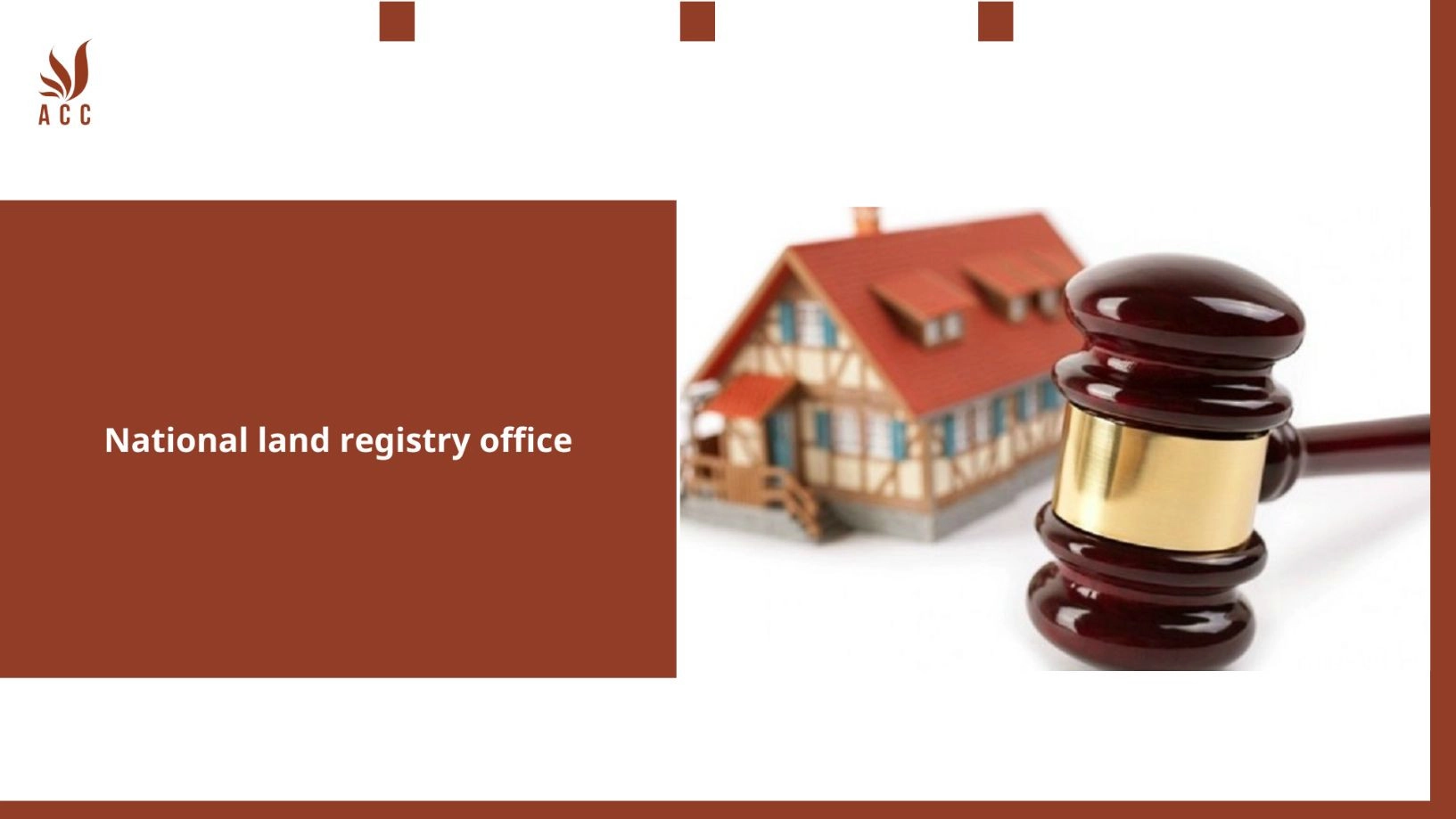A National Land Registry Office, also known as a National Land Title Office or a Central Land Registry, is a government agency responsible for maintaining property records and land-related documents at the national level. This office oversees and coordinates land registration and property ownership records for an entire country. The specific responsibilities and functions of a National Land Registry Office can vary by country, but they generally include the following:

1. Centralized Database:
Maintaining a centralized and comprehensive database of land and property records, including land titles, deeds, mortgages, and related documents.
2. Title Registration:
Registering land titles and changes in property ownership, ensuring that property transactions are legal and secure.
3. Public Access:
Providing public access to property records and documents, allowing individuals, legal professionals, and government agencies to search and retrieve information.
4. Verification of Ownership:
Facilitating title searches and ownership verification to establish the legal status of properties and their ownership.
5. Cadastral Surveys:
Overseeing and updating cadastral surveys to accurately determine property boundaries and land parcels.
6. Preventing Fraud:
Implementing measures to prevent property fraud and maintain the integrity of land records.
7. Information Services:
Providing information, guidance, and support to the public and professionals involved in real estate transactions.
8. When using ACC Law Firm's land-related services, entrepreneurs will receive
When using ACC Law Firm's land-related services, entrepreneurs will receive expert advice and assistance in navigating various legal aspects of land ownership and transactions. This includes guidance in property acquisitions, leases, zoning regulations, land use planning, and any other land-related legal matters. ACC Law Firm's team of experienced attorneys will provide personalized support to entrepreneurs, ensuring compliance with applicable laws and regulations, protecting property rights, and optimizing the value of their land investments.
9. Q&A
Question 1: What is the National Land Registry Office, and what is its primary function?
Answer 1: The National Land Registry Office, often a government agency, is responsible for maintaining a comprehensive and centralized record of land and property ownership for an entire country or region. Its primary function is to ensure the accuracy, security, and accessibility of land records for legal and administrative purposes.
Question 2: What types of information and records are typically maintained by the National Land Registry Office?
Answer 2: The National Land Registry Office typically maintains a wide range of information and records related to land and property, including property ownership records, deeds, land titles, land survey data, land use records, historical property transactions, and property boundaries.
Question 3: How does the National Land Registry Office contribute to the legal and administrative processes related to land?
Answer 3: The National Land Registry Office plays a crucial role in legal and administrative processes by providing a trusted and centralized source of land-related information. This helps confirm property ownership, facilitates property transactions, supports land use planning, and assists in resolving land disputes.
Question 4: How can the public or stakeholders access information from the National Land Registry Office?
Answer 4: Access to information from the National Land Registry Office is typically available to the public and stakeholders. This can be done through various means, including visiting the office in person, accessing online databases and search tools provided by the office's official website, or submitting requests for specific records or documents in compliance with relevant laws and regulations.
Nội dung bài viết:






Bình luận